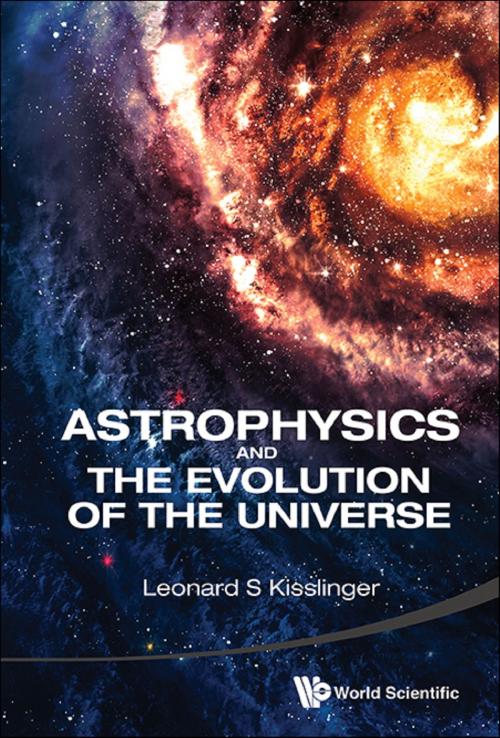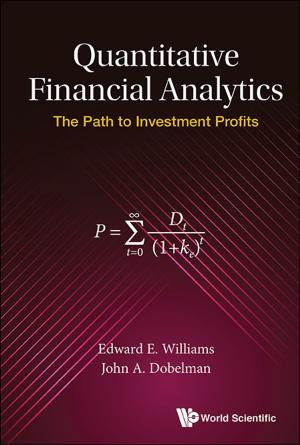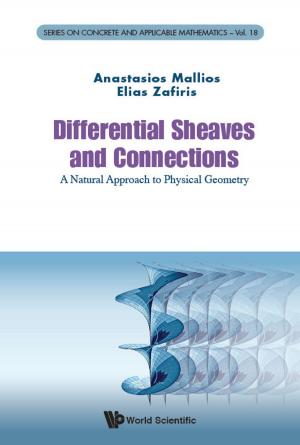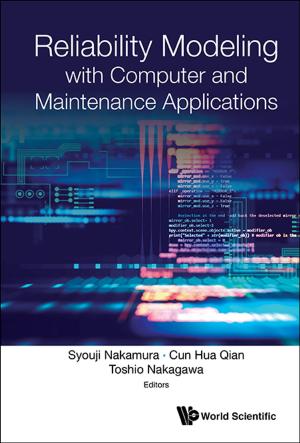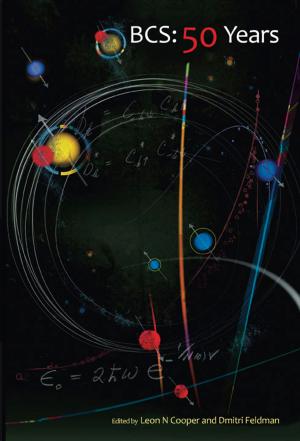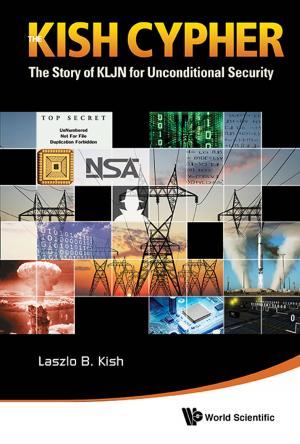Astrophysics and the Evolution of the Universe
Nonfiction, Science & Nature, Science, Physics, Cosmology, Astrophysics & Space Science| Author: | Leonard S Kisslinger | ISBN: | 9789814520928 |
| Publisher: | World Scientific Publishing Company | Publication: | March 18, 2014 |
| Imprint: | WSPC | Language: | English |
| Author: | Leonard S Kisslinger |
| ISBN: | 9789814520928 |
| Publisher: | World Scientific Publishing Company |
| Publication: | March 18, 2014 |
| Imprint: | WSPC |
| Language: | English |
The aim of this book is to teach undergraduate college or university students the basic physics concepts needed to understand the mathematics which describes the evolution of the universe, and based on this to teach the astrophysical theories behind evolution from very early times to the present. The book does not require students to have extensive knowledge of mathematics, like calculus, and includes material that explains concepts such as velocity, acceleration, and force. Based on this, fascinating topics such as Dark Matter, measuring Dark Energy via supernovae velocities, and the creation of mass via the Higgs mechanism are explained. All college students with an interest in science, especially astronomy, without extensive mathematical backgrounds should be able to use and learn from this book. Adults interested in topics like dark energy and the Higgs boson, which are in the news, can make use of this book as well.
Contents:
- Physics Concepts Needed for Astrophysics
- Forces and Particles
- Hubble's Law: Expansion of the Universe
- Stars, Galaxies, Etc.
- Neutrino Oscillations, Symmetries, and Pulsar Kicks
- Einstein's Special and General Theories of Relativity
- Radius and Temperature of the Universe from the General Theory of Relativity
- Cosmic Microwave Background Radiation (CMBR)
- Electroweak Phase Transition (EWPT)
- Quantum Chromodynamic Phase Transition (QCDPT)
Readership: Anyone with a basic knowledge of mathematics and an interest in astronomy.
Key Features:
- It teaches almost all aspects of astrophysics and cosmology
- It introduces the basic physics concepts needed to understand not only the evolution of the universe, but many other aspects of physics
- It is designed for college students who do not have extensive training in mathematics when they take a course with this textbook
The aim of this book is to teach undergraduate college or university students the basic physics concepts needed to understand the mathematics which describes the evolution of the universe, and based on this to teach the astrophysical theories behind evolution from very early times to the present. The book does not require students to have extensive knowledge of mathematics, like calculus, and includes material that explains concepts such as velocity, acceleration, and force. Based on this, fascinating topics such as Dark Matter, measuring Dark Energy via supernovae velocities, and the creation of mass via the Higgs mechanism are explained. All college students with an interest in science, especially astronomy, without extensive mathematical backgrounds should be able to use and learn from this book. Adults interested in topics like dark energy and the Higgs boson, which are in the news, can make use of this book as well.
Contents:
- Physics Concepts Needed for Astrophysics
- Forces and Particles
- Hubble's Law: Expansion of the Universe
- Stars, Galaxies, Etc.
- Neutrino Oscillations, Symmetries, and Pulsar Kicks
- Einstein's Special and General Theories of Relativity
- Radius and Temperature of the Universe from the General Theory of Relativity
- Cosmic Microwave Background Radiation (CMBR)
- Electroweak Phase Transition (EWPT)
- Quantum Chromodynamic Phase Transition (QCDPT)
Readership: Anyone with a basic knowledge of mathematics and an interest in astronomy.
Key Features:
- It teaches almost all aspects of astrophysics and cosmology
- It introduces the basic physics concepts needed to understand not only the evolution of the universe, but many other aspects of physics
- It is designed for college students who do not have extensive training in mathematics when they take a course with this textbook
